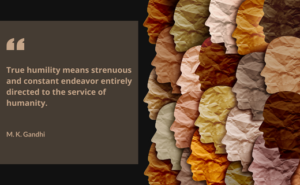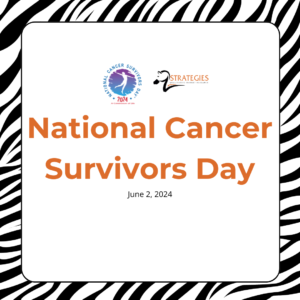Empathy can be benign, highly subjective, and increasingly overused. It has become a catch-all term that “covers bases” but often lacks the depth needed to drive actionable change. As a word with a multitude of interpretations, empathy is insufficient in today’s world. We need to become more accountable, compassionate, and measurable in how we apply not just empathy but the broader principles of respect and understanding in our work.
Why the Change?
Looking at a random 20 firms in marketing research, they all use the word “empathy.” It has become a “go-to” word and highly subjective, which it should be, but it’s not reflective of what we have learned is necessary to deliver to our audiences. As researchers, we need to ask ourselves, What are we really offering to our research participants? Are we just saying the right things, or are we actually creating a sense of belonging and inclusion?
I recall attending a professional conference a few years ago where a research company touted how they were “infusing” empathy into their framework. My initial thought was, As researchers, isn’t that what we’re all doing? Apparently not. As the COVID-19 pandemic unfolded, I watched nearly every research company and marketing consultancy add “empathy” to their websites and pitches.
But empathy quickly became a checkbox—a word thrown around for appearances, not for impact. The real question should be, What are we delivering not just to our clients but to the people we’re researching? Empathy, with all its interpretations and subjectivity, feels outdated. For Zebra Strategies, the challenge is no longer simply empathy; we must deliver more—belonging, inclusivity, and acknowledging lived experience. However, even those concepts can be complex to measure. If we ask participants whether they feel a sense of empathy, belonging, or inclusivity in our research, can we genuinely expect an honest, measurable answer?
That’s why Zebra Strategies is breaking up with empathy. Reflecting on over 22 years of work, we feel it’s time to go deeper. The challenges we face today are anything but ordinary, and it’s clear that “truth and reconciliation” are needed now more than ever. I’ve always believed in the importance of “overstanding” as a mission-driven firm, and that belief remains strong. Overstanding goes beyond surface-level comprehension to achieve a deep, compassionate, and holistic understanding of people, systems, and challenges. It’s not just about gathering data or analyzing trends—it’s about fully immersing in the nuances of a problem or opportunity to grasp the cultural, emotional, and intersections that traditional methods might overlook. This is how we aim to promote transformative work at Zebra. While our five tenets have been the foundation of our success, I’m constantly pushing for more; how can we deliver to these communities consistently and extraordinarily?
So, if empathy is outdated, what comes next? After years of iteration, we’ve developed an improved approach, but getting there requires moving through distinct stages of thought evolution.
Empathy Isn’t Enough Anymore
Curiosity and empathy are essential starting points—initial attempts to understand and connect. However, without action, they remain surface-level. We need to evolve these concepts into deeper, more accountable practices.
Reflecting on our extensive experience and history, we’ve realized that the issues facing marginalized communities require a more thoughtful approach. While empathy can create a connection, it often falls short. That’s why we’re focusing on three different stages:
Stage 1: Inquiry—Curiosity, Radical Compassion, and Amplification
- Understanding begins with curiosity, radical compassion, and amplification, but actual progress requires moving beyond surface-level actions to responsibly address the needs of underrepresented communities.
Stage 2: Recognition—Dignity, Esteem, and Intention
- This stage emphasizes actively respecting participants by upholding their dignity, valuing their unique contributions, and intentionally fostering meaningful, respectful interactions.
Stage 3: Embrace—Honor and Value
- At the highest level, embracing honor and value means genuinely elevating individuals’ intrinsic worth and fully appreciating their contributions.
These principles create a foundation for mutual respect and long-term trust, allowing us to honor the voices we connect with.
Avoiding Performative Actions
A big part of this new way of thinking is steering clear of “performative allyship.” Genuine support for underrepresented voices takes real effort and action. Here are some ways we can do this.
- Learn: Take time to understand the challenges faced by different groups.
- Listen and Share: Champion the voices of those you want to support without speaking over them.
- Take Action: Get involved by volunteering, advocating, or collaborating with marginalized communities, not just when necessary for research or representation.
- Reflect on Privilege: Recognize how your background affects your views and actions.
- Build Real Relationships: Create genuine connections based on mutual respect and understanding.
- Stay Accountable: Regularly check in on your commitments and be open to feedback.
- Support Lasting Change: Explore policies and initiatives that address the root causes of inequality.
Conclusion: A New Path Forward
As we progress in our research, it’s essential to realize that our methods need to change. By moving beyond empathy and embracing dignity, esteem, and intention, we can create stronger connections and make a real difference. This shift will not only improve our research but also strengthen our relationships with the communities we serve. Together, we can redefine how we engage with and uplift voices in diverse communities, moving from surface-level empathy to genuine respect, dignity, and value. We think this is important as many want to uncover insights into this community as well as the monetary gain, but our goal is to ensure these communities are harmless once the insights are revealed. If you want to learn more about this new way of thinking, stay tuned for the full release of Zebra Strategies’ Breaking Up with Empathy framework in the new year.






